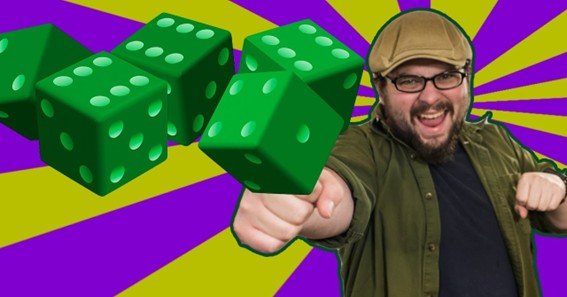In tabletop gaming, particularly in role-playing games like Dungeons & Dragons, dice of various shapes and sizes are used to introduce elements of chance and variability. One such die is the three-sided die, commonly referred to as a d3.
However, due to the impracticality of manufacturing a physical three-sided die, players often employ alternative methods to simulate a d3 roll.
Simulating a d3 Roll
Since a physical three-sided die is uncommon, players typically use a standard six-sided die (d6) to simulate a d3 roll. This is achieved by dividing the d6 outcomes into three groups:
- Method: Assign two d6 results to each d3 value:
- Rolls of 1 or 2 correspond to 1
- Rolls of 3 or 4 correspond to 2
- Rolls of 5 or 6 correspond to 3
This method ensures an equal probability for each d3 outcome. For a visual explanation, refer to this video:
Online d3 Rollers
For convenience, several online tools can simulate a d3 roll:
- Roll a D3 Die: This tool allows users to roll a virtual three-sided die, with options to roll multiple dice and view totals and statistics.
- Roll D3 – Roll a Three-Sided Die Online: Offers customizable options for rolling a d3, including sharing configurations and displaying sums.
- DnD Dice Roller: Provides a platform to roll any combination of dice, including a d3, with explanations of different dice types used in tabletop games.
Applications of a d3 Roll
In gaming scenarios, a d3 roll is often used to determine outcomes with three possible results, such as:
- Determining Random Events: Choosing among three potential events or actions.
- Damage Calculation: Assigning damage values ranging from 1 to 3.
- Resource Allocation: Distributing resources or points among three categories.
Understanding how to simulate a d3 roll enhances gameplay by providing a fair and simple method to achieve three equally probable outcomes.
FAQ
1. What is a d3 in tabletop gaming?
A d3 refers to a three-sided die used to generate random numbers between 1 and 3.
2. Why isn’t a physical d3 commonly used?
Manufacturing a fair three-sided die is impractical; thus, players simulate it using other methods.
3. How can I simulate a d3 roll with a d6?
By mapping d6 results to d3 outcomes: 1-2 = 1, 3-4 = 2, 5-6 = 3.
4. Are there online tools to roll a d3?
Yes, platforms like Roll a D3 Die and DnD Dice Roller offer virtual d3 rolling.
5. In which games is a d3 roll commonly used?
Games like Dungeons & Dragons utilize d3 rolls for various in-game mechanics.










